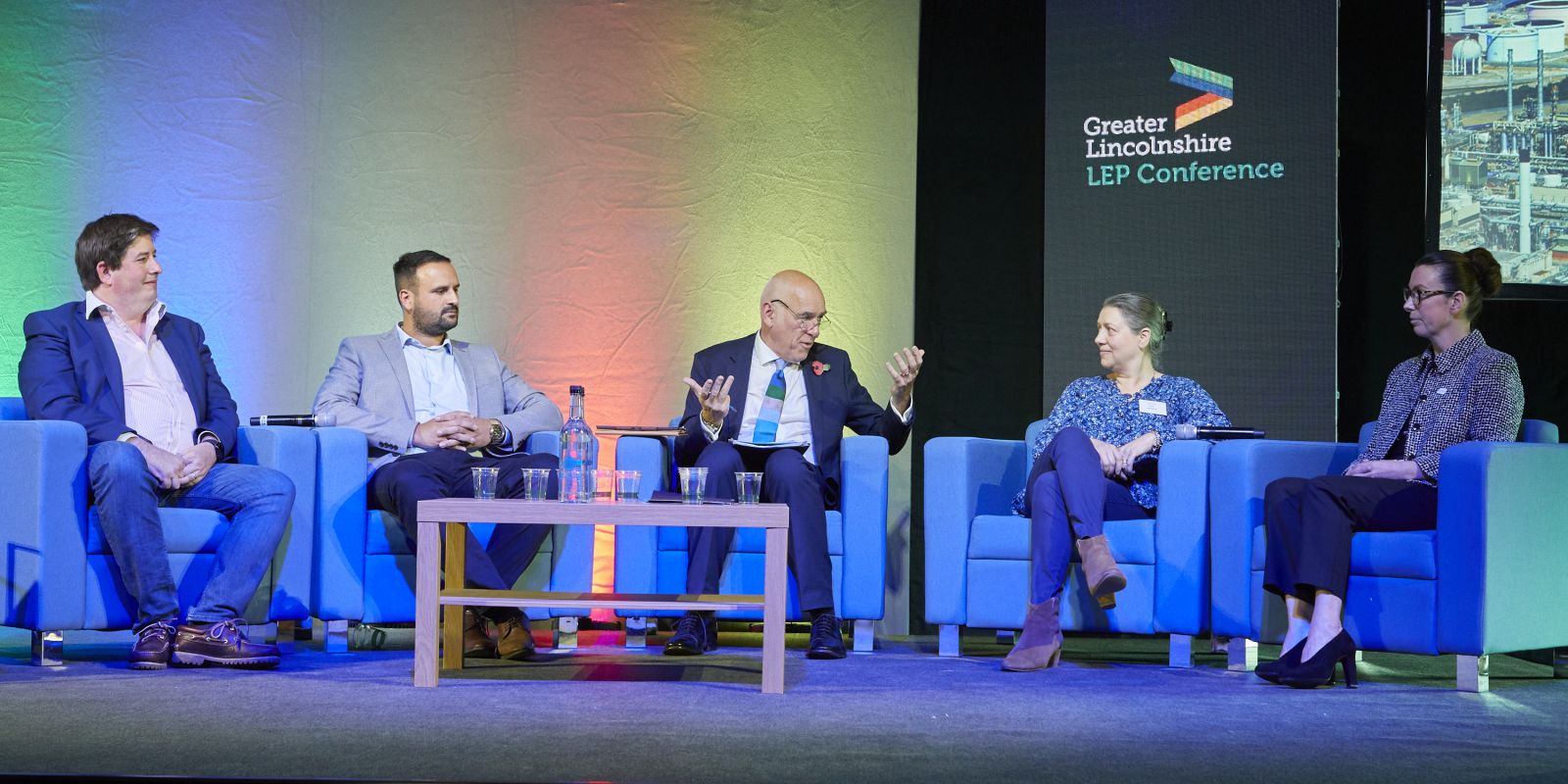James Brown on Industry Challenges and Innovation
James Brown is the fifth generation of his family in farming, currently as Managing Director of The Lapwing Estate and Pollybell Organics, a 5,000-acre lowland farm straddling the borders of North Nottinghamshire, North Lincolnshire and South Yorkshire.
Focusing on intensive vegetable production, the business is pioneering changes to land use through its Reverse Coal project to reduce its carbon footprint, manage water and increase biodiversity, while simultaneously maintaining food production. The business includes Lapwing Energy which focuses on renewable energy generation and Browns at the Buttercross which provides catering and food retail services to the public. James is also the founder of agritech businesses including Earth Rover and Upcycled Plant Power (UPP).
James talks to us about the challenges the industry is facing today and the impact of innovation and emerging technologies.
As a fifth-generation farmer, I am sure my great great grandfather could never have conceived many of the things we now take for granted and the technologies we routinely use, but not everything changes. 130 years ago, faming was responding to geopolitical tensions, an industrial revolution was accelerating the speed with which people and goods travelled and a growing population was increasing demand for food … and many farmers were struggling to make a sustainable profit.
Many of the challenges from my great great grandfather’s day have clear parallels today, but I would add a further challenge which has grown rapidly in importance during my lifetime is the need to address climate change. On 28th July 2022 we were one of the farms where the temperature exceeded 40oC for the first time in the UK. We are seeing more extreme weather events, more droughts, floods and temperature extremes, putting real pressures on food production.
At The Lapwing Estate we recognised several years ago that we would need to change our farming system. We are a lowland, predominantly peatland farm and by draining our land for vegetables we contribute to carbon emissions, with peatland believed to be responsible for 3% of UK GHGs. Some argue that we should stop farming our land and allow it to rewild, but the uncomfortable truth is that if we did this we would simply import more food and, in the process, increase carbon emissions.
Instead, I believe we need to accelerate innovation to fundamentally change how we farm, the skills we have and the partnerships the business has in place to create a sustainable future. If we can do this, I believe we can sustain or increase our fresh produce output at the same time as addressing carbon emissions.
This was the genesis for our Reverse Coal project, which aims to rewet peatland, grow biomass crops on this land and sequester carbon both in the soil and in the crops we harvest. The processing of biomass, using a process called pyrolysis, produces both energy we can use to produce food in controlled environment agriculture and a stabilised form of nearly pure carbon which can be stored or used to displace fossil fuels with a green form of carbon.
We are very fortunate to have been able to work with the University of Lincoln, and other research centres on a series of projects supported by Innovate UK, DESNZ and the Environment Agency to develop this technology. It is therefore excellent to see the many new funding opportunities the University and the Greater Lincolnshire LEP have secured. It is particularly pleasing to see Lincoln continuing to lead programmes which are based on partnership with other research centres and industry, because my experience is that no single business or research team has all the answers.
We will also need new skills and so I was delighted to be asked to sit on an employer panel at the LEP conference on the 7th November on the future of the workforce. It was a stimulating experience, and we discussed some very important issues such as the need to use AI alongside people, not replacing them as some have argued in recent weeks. The use of technology has always led to new job roles and I believe it will continue to do so.
We also have to recognise that staff want a sense of purpose and recently we have found that staff who before Covid could only be recruited in global cities, like London, are now happy to work in rural Lincolnshire. Our Earth Rover business also employs staff who are based in Barcelona, France and Singapore, while we have teams from India, Australia and Singapore supporting our core UK team for the Reverse Coal project. Modern technology enables us to work with the best talent from Lincolnshire and around the world and this is I believe the future, combining multiple talents and technologies.
On the panel at the conference, we were asked how jobs will have changed by 2035 and I was very clear in my answer that, whilst how we work and farm will change, there will still be a need for staff with the skills and aptitude to work alongside technology to produce food.
The farming and food sector will be needed because by 2035 the global population is expected to have increased by a further 834 million, or the equivalent of today’s population of the UK, USA and EU combined.
I am therefore delighted to see Greater Lincolnshire putting the UK Food Valley and food sector at the heart of the Devolution Deal announced on 23rd November. The Deal recognises that the UK needs to embrace the potential to increase domestic food production in products, such as fresh produce, in which the UK is a big net importer. It also stresses the need to get innovation out of the lab and into the field.
This focus is very well aligned with my plans for our businesses, and I look forward to continuing to work with the LEP, forthcoming Mayoral Authority and our partners at the University to make this a reality. I know we can lead a farming revolution in our region, but to do so we will have to work together, take some risks and innovate constantly. My business could not have survived for five generations unless it had remained committed to change and I am determined to make sure that I play my part in delivering innovative solutions until it is my time to pass the business on.
The UK Food Valley and LEP would like to thank James for his contribution to the newsletter and our conference on 7th November. Further news and feedback on the conference is available here.



